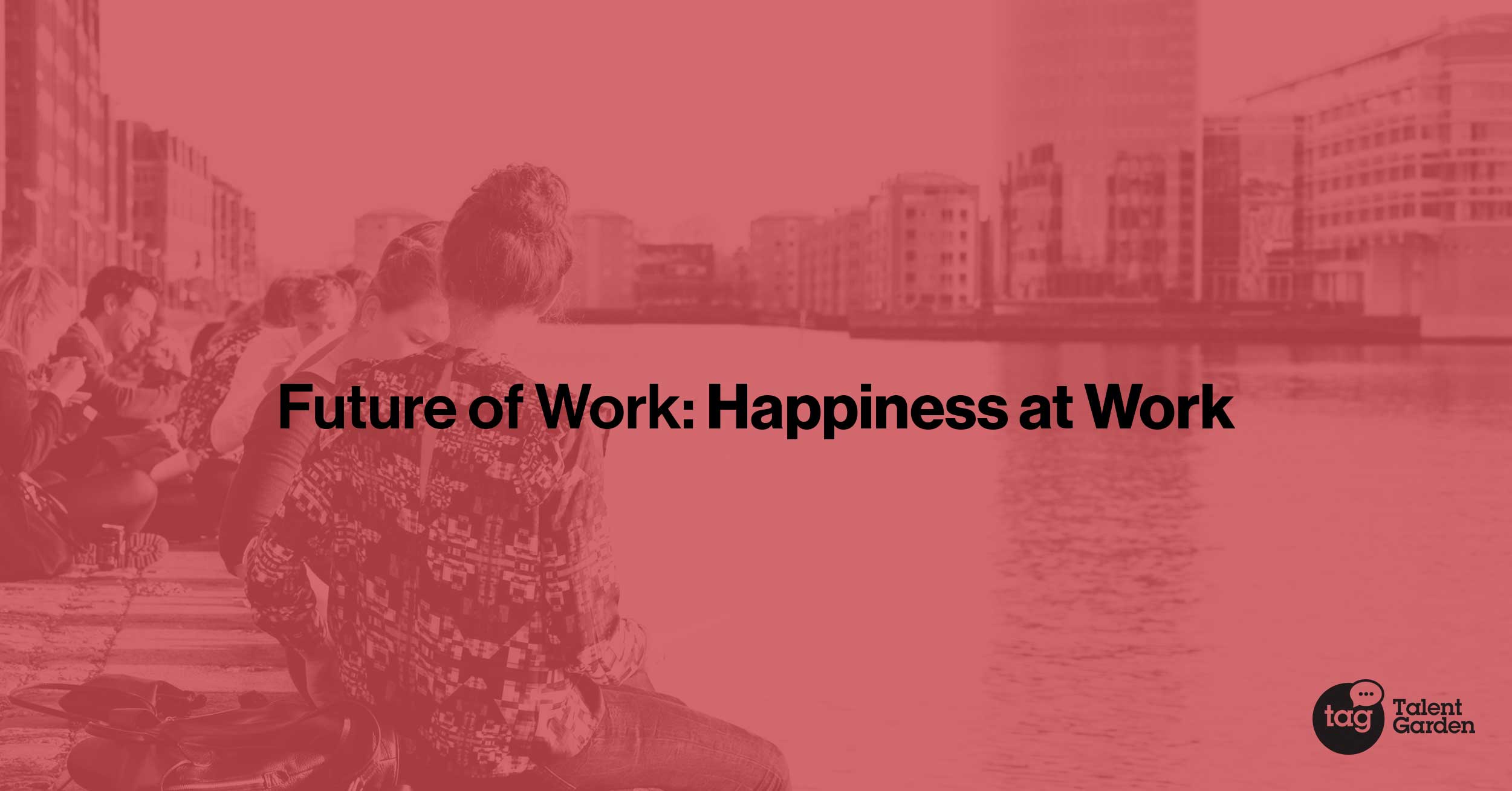

Scope of our research: An indicator of trends
We talked to a focus group of 124 future workers. We have focused on these voices because they are a part of companies, where work is deeply fluid and there is an openness to new approaches. They are all employed within startups and born after 1982. Our research is qualitative and limited in scope by nature. The findings should be seen as early signs of future trends and a foundation for discussing where work is headed.1. Why are talents ready for a fast exit?
Tech talents are fickle, have a relatively low sense of loyalty towards their companies and put their personal growth journeys first. This is one way to interpret the results of this part of our survey. A different interpretation is that our labor market as it is today - in particular within the startup ecosystem - is not mature enough to foster and retain the tech talent it so badly needs.
 72% of our respondents have only been in their current role for less than one year and the same percentage do not plan on staying there for longer than one more year or two. Our immediate question is, of course, why? Why do they want to leave so soon and what would make them stay? Again, we need to remember the specificity of our respondent pool. It might be a startup thing. It could, of course, also be a generational thing, or simply a Danish thing, where a (relatively) easy access to new jobs might make professionals more prone to move around and try out new places.
This question is difficult to answer in a quantitative study. What we do know, however, are the reasons the respondents themselves give for wanting to leave their workplace, of which the most common answer is a lack of career progression, followed by unfulfilling work tasks and bad management. It would be interesting to know what kind of promotion the respondents are envisioning, and if it even is a promotion. Perhaps it is a matter of being given more ownership or responsibility, which is what they mention as one of the things that make them happy at work.
72% of our respondents have only been in their current role for less than one year and the same percentage do not plan on staying there for longer than one more year or two. Our immediate question is, of course, why? Why do they want to leave so soon and what would make them stay? Again, we need to remember the specificity of our respondent pool. It might be a startup thing. It could, of course, also be a generational thing, or simply a Danish thing, where a (relatively) easy access to new jobs might make professionals more prone to move around and try out new places.
This question is difficult to answer in a quantitative study. What we do know, however, are the reasons the respondents themselves give for wanting to leave their workplace, of which the most common answer is a lack of career progression, followed by unfulfilling work tasks and bad management. It would be interesting to know what kind of promotion the respondents are envisioning, and if it even is a promotion. Perhaps it is a matter of being given more ownership or responsibility, which is what they mention as one of the things that make them happy at work.
“I see the job market becoming more and more flexible in terms of contracts and working relationships. Companies will acquire the skills they need without permanent contracts, but with more freelancers and this kind of flexible agreements. Workers will become more independent and fulfilled by impactful projects and short-mid term gigs, and they will have more freedom to choose where they want to be and who they want to contribute to.” Lorena Perez, Chief People Officer, Talent Garden
2. Good vs. bad management
The work task topic is particularly interesting to relate to our question about overlapping roles and blurred out job descriptions. In theory, this could mean that we are working with new and exciting things every day, but in reality it could mean just the opposite - that we are asked to perform tasks that we never would have signed up for in the first place. In startups, the latter is often the case, as there are not enough people employed for clear job divisions and everyone has to “pitch in” where needed. Bad management is not a startup thing per se, as it is in general a top reason for unhappiness at work in all industries and company sizes. However, management within startups is a topic meriting its own study. Leadership in a company which is already under huge time and work pressure - as startups often are - is of a different character than leadership in an established corporation. Managing talents without a big budget and the benefits possible in a larger organisation can also be difficult and might require CEOs to offer alternative incentives to their teams. A CEO who is fantastic at entrepreneurship might also not have the skill set needed to be a great leader, as these are two very different things.
3. Money matters, but personal growth is key
Interestingly, when asked what would make our respondents stay, the three most common answers were a higher salary, a clearer career path with defined goals, and better training/learning opportunities. Again, these might be difficult things to do in a startup, where budget is tight (both for salary and benefits like training) and the career paths depend on where the company is going - which, again, is a topic of high uncertainty for many. As for what actually makes people happy at work, the most common answer given is learning new skills. This supports the thesis that young tech talents see their careers as a path of personal development. A higher salary would make them stay (at least for a while), but personal growth makes them happy. The second most frequent answer was good and productive teamwork. Again, this could be read against the startup context. In a company with less than 15 employees (which is the case for 46% of our respondents), a good team is vital for wellbeing in the workplace. The third most common answer was interesting work tasks, whose opposite was one of their main reasons for wanting to leave their companies. Another reason given for happiness at work is ownership and responsibility, along with flexibility and a possibility to work remotely. Again, these two answers concern personal development and freedom - two important happiness factors for our respondents.

“Project or freelance hires often do interesting tasks, but lack basic stuff like pension and maternity leave. So aside from the expectation that work should not be repetitive, I also see a new awareness about basic rights. Some of those things our parent’s generation took for granted - and rightly so - because their employment was more fixed.” Johanne Aarup Hansen, Relational Designer, Flexwerker

Don't Waste Your Talent. Turn It Into a Career With a Course That Fits Your Needs!
Keep reading

The Key to Finding Success Through Work-Life Balance

Combatting the Hybrid Work Model: An Interview with OnTruck

Hack Access - Striving to Solve Accessibility Challenges Around the World

